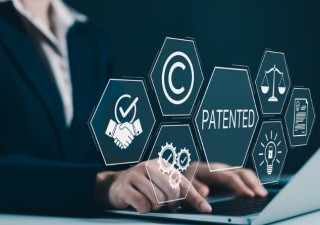According to a report from the Institute for Information Industry, infringing set-top boxes and websites cause damage worth up to NT$28.3 billion (US$977 million) to the Taiwanese OTT industry. “However, most of the infringing websites’ servers are not set up in Taiwan, so it is difficult for rights owners in Taiwan to take effective enforcement action,” says Dernbach. “Most of the top-visited infringing websites in Taiwan have their servers overseas. As a result, it is critical to identify ways to reduce the influence of infringing websites that are hosted overseas.”
Because of the prevalence of digital piracy, up-and-coming artists may also be hesitant to make money out of their creative IP. Still, according to Dernbach, with the piracy rate exceeding 80 percent every year from 2014 to 2016, this high piracy rate shows how serious the issue is for artists in Taiwan.
“The government and industry are trying to improve the situation by adopting different measures, including the IWL project,” he says.
Other ways in combating digital piracy in Taiwan is for rights holders trying to expand the scale of the IWL project by persuading big search engines or online platforms to join the project. Apart from the IWL project, the rights holders are also working on establishing a verification system that verifies infringing websites using independent third-party institutions. The rights holders might provide the verified list to the internet service provider and encourage them to block or hide search results of infringing websites.
As for efforts from the government, the Taiwan Intellectual Property Office (TIPO) has been providing public anti-piracy training through schools and other channels. They also cooperate with international bodies exchanging information regarding online piracy. Taiwan also amended its Copyright Act on April 16, 2019, which provides that companies that offer set-top boxes or apps, allowing consumers to link to websites or download infringing content can face criminal penalties.
“This is an important step to address the issues presented by the increasing number of set-top boxes or apps that have been sold on the market, which provide users with a convenient channel to access infringing websites,” he says.
Although there are no statistics about the effectiveness, there is anecdotal evidence that the IWL project has been effective in some cases. It appears that the volume of advertisement on some of the listed websites has significantly decreased after the websites’ inclusion in the IWL.
“It is worth mentioning an incident that happened earlier this year,” says Dernbach. “At the end of March, the Taiwan Criminal Investigation Bureau unearthed the biggest infringing website in Taiwan called Mapple.com and arrested its two founders. The website was established in 2014. One of the reasons the police were able to catch them was that the advertising income had dramatically decreased since the launch of the IWL project. Therefore, the founders chose to establish their advertising firm to increase revenue, but this also created a traceable flow of money. This shows that the IWL may be one more tool that can be used effectively with other devices in the fight against infringing websites.”
With the IWL in place not only in Taiwan but also in other Asian countries, Dernbach looks forward to a regime that can identify infringing websites, and make it easier for advertisers and users to support legitimate content on-line. He says that it is always a struggle to balance the interests of all the various stakeholders, but he feels optimistic about the future of IP protection in Taiwan.
“I believe that customers’ habits, the innovation of technology, and development of new business models all continue to evolve,” he says. “As it becomes easier for customers to access licensed materials, the negative impact of piracy can be reduced. For instance, online streaming services provide more convenient channels to listen to music, compared to traditional CDs and might reduce incentives for customers to rely on infringing sources. Also, increasing cooperation between different jurisdictions and different industries creates a more favorable environment for legitimate content and unfavorable conditions for infringing websites.”
He adds: “I believe that although we can’t completely stop online piracy, we can work together to significantly improve the situation in the future.”
Excel V. Dyquiangco








